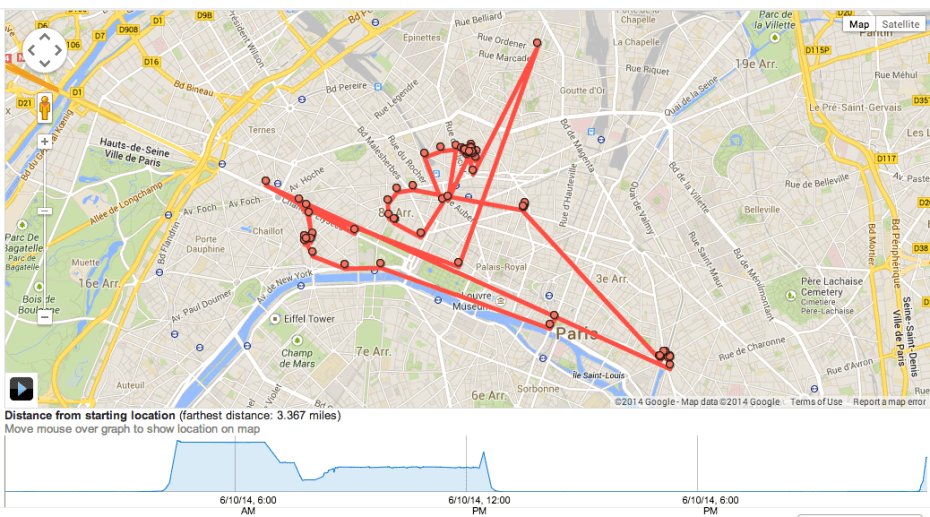Why it matters: It is not surprising that Google can and does track Android and iOS users that use its apps such as Maps or Chrome. Likewise, it is probably not all that astonishing that it sells that location information to advertisers. However, it may be a shock to find out that even if you turn off Location History, those apps are still tracking and collecting your location information.
A researcher at UC Berkeley noticed something strange when she had Location History disabled. Her phone requested she rate a recent visit to Kohl's, which prompted her to ask on her blog, "So how did Google Maps know where I was?"
It's a good question and one the Associated Press was eager to look into with the help of computer science researchers at Princeton University.
If you've used a smartphone for any length of time, you're probably aware that there are options to turn off location tracking. If allowed, Google apps will track your movements and save them to your account under your Location History. So if you turn off this setting, Google stops tracking you, right?
It's a fair assumption, but it is also wrong. Turning off Location History only stops Google from saving your movements to your visual history which you can view at any time on your Google account webpage. Even with Location History disabled, some apps still track your movements without you knowing.
"Storing location data in violation of users' preferences is wrong."
"I am not opposed to background location tracking in principle," said Berkeley urban planning researcher K. Shankari. "It just really bothers me that it is not explicitly stated."
Indeed, Google is not very transparent when it comes to notifying users of its location tracking practices. You can find it in its terms of use and a few other places that users tend not to tread much.
"Storing location data in violation of users' preferences is wrong," said Princeton computer scientist Jonathan Mayer, who also formerly served as chief technologist for the FCC. "If you're going to allow users to turn off something called 'Location History,' then all the places where you maintain location history should be turned off. That seems like a pretty straightforward position to have."

A Google spokesperson argued that the company is "perfectly clear" regarding its tracking policies and how to turn off services.
"There are a number of different ways that Google may use location to improve people's experience, including Location History, Web, and App Activity, and through device-level Location Services. We provide clear descriptions of these tools, and robust controls so people can turn them on or off, and delete their histories at any time."
To completely disable location tracking, users must turn off Location History and Web & App Activity --- something not made abundantly clear to the typical user.
In fact according to the AP, "Google offers a more accurate description of how Location History actually works in a place you'd only see if you turn it off --- a popup that appears when you 'pause' Location History on your Google account webpage."
Another popup also appears when re-enabling Web & App Activity, but since this setting is on by default, it's not likely the users will see it unless they already know about disabling these services.
Last year Google earned $95.4 billion from location-related advertising. It is no wonder that they bury how to opt out of these services deep within their privacy agreements, and obscurely related popups on the phone and account websites. Ignorance of these policies and procedures is no defense, but users these days are pretty lazy. This is a fact that Google banks on in a very literal sense.
Map Image via The Mobile PC Guys
